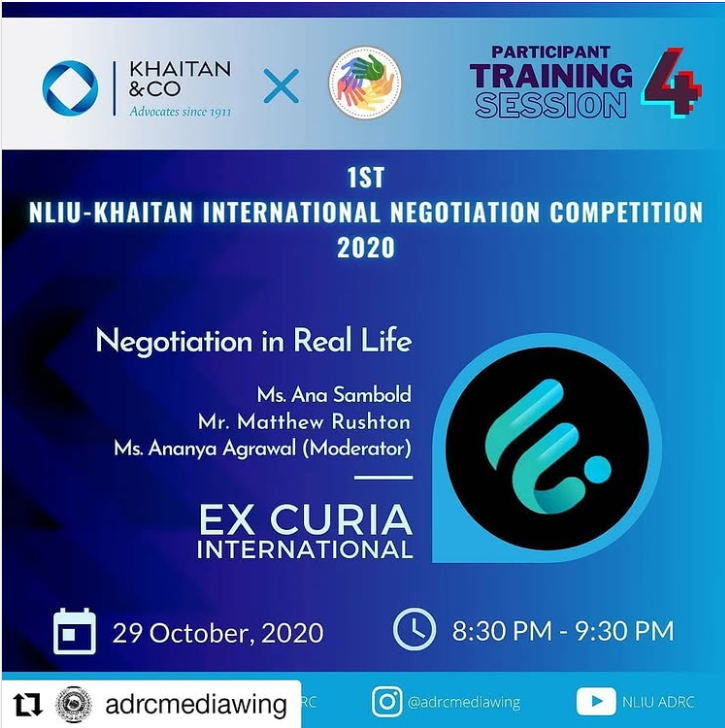Edouard Papeil* The arbitrability of disputes implicating mandatory rules of European law being widely accepted,[i] the arbitrator has become a “regular judge of such disputes”[ii] alongside the national courts, in particular with regard to competition and consumer law. However, for the arbitrator, whose jurisdiction originates from the will of parties and not from the States, the application of those rules has not been without raising many questions.[iii] Although most issues have been addressed by the European Court of Justice and Member States’ national courts, and despite the fact that arbitrators are generally chosen for their expertise on these matters,[iv] some doubts remain, particularly as to existence of a duty to raise, ex-officio, the mandatory rules of European law applicable to the dispute. *** The uncertainty as to the answer that should be given to this matter originates from the deterritorilized nature of international arbitration. Unlike national judges, arbitrators are detached from the State’s legal orders. They are not bound either by procedural rules provided by national laws or by any strict judicial hierarchy.[v] In the absence of attachment to a forum, the arbitrators are similarly not bound by the European legal system. As a result, they are not subject to the principle of primacy or to the principle of effectiveness, on which the Court de Cassation relies to oblige judges in raising ex-officio, and where appropriate applying, the rules of public policy deriving from European law.[vi] This autonomy vis-à-vis legal orders is coupled with considerable autonomy granted to arbitrators in the exercise of the mission conferred upon them by the parties. In principle, arbitrators are obliged to rule on the basis of the law chosen by the parties as applicable to their contract. Nonetheless, they are authorized to depart from it, if it is contradictory to a norm hierarchically superior because “the term law is sufficiently broad to cover not only the law in the sense of a text adopted by Parliament, but also regulations, case-law, customs, treaties insofar as their content is incorporated into the legal order of the State, federal law or the law of a regional entity (the European Union, for example) to the same extent, and the constitution”.[vii] Consequently, arbitrators may, at the request of a party or on their own initiative, and subject to respect for the adversarial principle,[viii] exclude the application of the chosen law should it be contrary to a mandatory rule of European law. Despite this particular autonomy granted to the arbitrator, it is still constrained by the respect of certain standards deriving from national law. Indeed, when ruling on a dispute submitted to arbitration by the parties, it must ensure the effectiveness of the award,[ix] i.e. reasonably guarantee its recognition and non-setting aside. This presupposes the observance by the arbitrator of grounds for non-recognition provided by the law of the States, in which enforcement of the award will be sought, as well as grounds for setting it aside in the State of the seat of arbitration. In this respect, if one or several law of those States provide for the duty of the arbitrator to raise ex-officio the mandatory rules of the European law, the arbitrator shall have no other choice but to submit to it failing which arbitration proceedings would have been veined. This subject was directly addressed by the Paris Court of Appeal in Thales v. Euromissile.[x] The court ruled that, under French law “no setting aside (of the award) is incurred simply because the arbitrators failed to raise questions of European competition law ex-officio”.[xi] In this view, by rejecting the principle whereby the award is not subject to setting aside, in the event that the arbitrator would not have ex-officio raised the mandatory rules of European Union law applicable to the case, judges refused to impose such a duty on the arbitrator. Nevertheless, the arbitrator still has a vested interest, if the seat of the arbitration is Paris, or if the award is to be enforced on the territory of the Member-State, in seeking and ultimately raising the mandatory rules of European law. Indeed, even if the mere fact that the arbitrator has not raised these rules does not cause the award to be set aside, it is nevertheless weakened by its potential conflict with international public policy at the enforcement stage. In this regard, the Paris Court of Appeal, in the Shooner[xii] case has, in line with the Thales case-law, guaranteed that the violation by the award of international public policy, of which European public policy is part,[xiii] is sanctioned by national courts. For this purpose, the court clarified the scope of article 1466 of the Code of Civil Procedure (applicable to international arbitration in virtue of article 1506 of the Code of Civil Procedure) providing that “the party who, knowingly and without legitimate reason, fails to invoke in due time an irregularity before the arbitral tribunal shall be deemed to have waived the right to invoke it”.[xiv] On the one hand, it was affirmed that the presumption of waiver “does not only apply to procedural irregularities but to all claims that may be considered as grounds for initiating an action for the setting aside of awards [provided for by French law]”, and, on the other hand, were excluded from its scope of application “the claims alleging that the recognition or enforcement of the award would […] violate substantive international public policy”.[xv] On the basis of this exclusion, it was held that the parties, and the judge ex-officio, may raise any violation of international public policy in the proceedings subsequent to the award. Consequently, French judges have the power to set aside an award on the grounds of the arbitrator\’s failure to raise and apply the mandatory rules of European law, even if the parties have not raised them during the arbitral or judicial proceedings. This ruling, although not directly imposing a duty on the arbitrator, is such as to prompt arbitrators to raise the mandatory rules of European Union law. This is all the more







